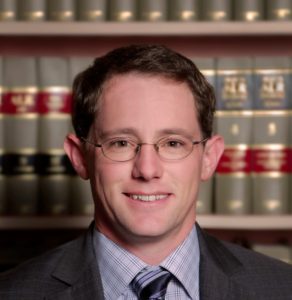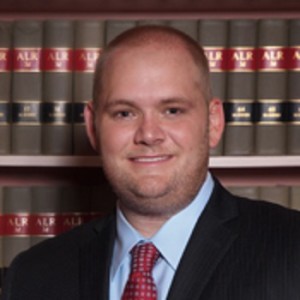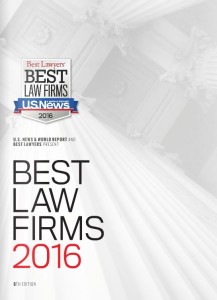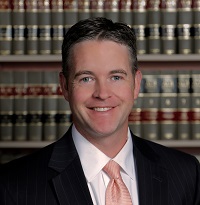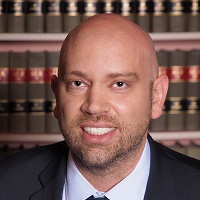Pregnant Workers & the Fairness Act
Are you in compliance with the Pregnant Workers’ Fairness Act?
If you are an employer in Nevada, you probably are well aware that federal law prohibits you from discriminating against employees and/or potential employees on the basis of pregnancy or a pregnancy-related condition. Additionally, you probably already understand that you are required to provide reasonable accommodation to such employees. However, many employers are unfamiliar with the Nevada Pregnant Workers’ Fairness Act of 2017, adopted during the 2017 legislative session, and its impact on interactions between employers and such employees. In this article, we will review the underlying federal law establishing the baseline for interactions with employees who are pregnant, or suffering from pregnancy related conditions, and discuss how the Act, which went into effect on Oct. 1, 2017, differs from prior law.
In 1978, Congress enacted the Pregnancy Discrimination Act of 1978 (PDA) which expanded protections to pregnant workers provided under Title VII of the Civil Rights Act of 1964. The PDA makes it unlawful for an employer to discriminate against an employee on the basis of pregnancy, childbirth or a related condition.
Subsequently, in 1990 Congress enacted the Americans with Disabilities Act (ADA), which requires employers to provide reasonable accommodations to employees suffering from a disability. Congress further expanded protections under the ADA in 2008 by requiring employers to accommodate temporary disabilities. While pregnancy is not classified as a “disability,” if a pregnancy, or related condition, impairs a woman’s ability to complete her essential job functions, under the 2008 amendment an employer is required to provide reasonable accommodation to assist the employee in completing her essential job functions. Under the ADA, an employer, and not the employee, is given the authority to select the accommodation. Accordingly, where an employer offers a reasonable accommodation to an employee, the employee must prove that the accommodation is unreasonable to successfully challenge the employer’s accommodation.
The 2017 Nevada Pregnant Workers’ Fairness Act significantly expands protections for pregnant workers, and workers suffering from pregnancy related conditions in Nevada. Specifically, the Act makes it unlawful for an employer who is covered under the Act to engage in any of the following actions against a female employee who is pregnant, or suffers from a pregnancy related condition:
- Refuse to provide a reasonable accommodation to the employee.
- Take an adverse employment action against the employee.
- Deny the employment opportunity to the employee, if she is qualified for the opportunity.
- Require the employee to accept an accommodation that she did not request or choose.
- Require the employee take leave from employment, if a reasonable accommodation is available and would allow the employee to remain at work.
Additionally, employers should be aware that their current compliance with federal law, will not ensure compliance with the Nevada Pregnant Workers’ Fairness Act. Specifically, there are four important distinctions between what is required under federal law and what is required under the Act. These differences are:
- Federal Law is not gender specific. However, the Act only applies to female employees.
- Under federal law, the employer determines what accommodation is reasonable and may require the employee to use an accommodation selected by the employer. Further, an employer could require an employee to take leave as an accommodation. Under the Act, an accommodation may not be imposed on an employee without her consent, and an employer may not require an employee to take leave. Therefore, under the Act, generally, the employee, and not the employer, chooses her accommodation.
- Under federal law, an employee may be required to submit a doctor’s certificate establishing that she indeed has a recognized disability and needs accommodation. However, under the Act, the employer may not require an employee to submit an ADA compliant doctor’s certificate. Instead, an employer may only require the employee to provide an explanatory statement from a physician concerning a recommended accommodation.
- Finally, under federal law, a “disability” is a defined term, and is limited to physical or mental impairments that substantially limit a major life activity. Accordingly, in order to qualify for accommodation under federal law, an employee must be able to prove that he or she suffers from a condition which “substantially limit[s]” one or more major life activity. Under the Act, there is no such limitation to finding an employee suffers from a condition triggering the right to accommodation. Instead, the Act only requires the employee to assert that she is pregnant, or has “any medically recognized physical or mental condition related to pregnancy, childbirth or recovery from pregnancy or childbirth” in order to obtain accommodation from her employer.
Employers should be cognizant of these changes, and the differences between federal and state law. Further, employers should consider seeking competent legal advice should they have any questions concerning compliance with the Act.
See the article at: Northern Nevada Business Weekly
Jordan Walsh is an associate with Allison MacKenzie Law Firm with primary practice in the areas of Labor and Employment Law. Jordan is admitted to practice in Nevada and California.
Kevin Benson, attorney with Allison MacKenzie Law Firm
Allison MacKenzie Law Firm is pleased to announce the hiring of Kevin Benson as an associate attorney effective March 1, 2017. A Carson City native and former State of Nevada Senior Deputy Attorney General, Kevin joins the law firm and will focus his areas of practice on civil litigation, appeals, administrative and regulatory matters, election law, and ballot measures.
Upon graduating from Carson High School, Kevin attended the University of Nevada, Reno, where he obtained a degree in Criminal Justice with a minor in Biology in 2001. In 2004, he obtained his Juris Doctor Degree from Rutgers School of Law in New Jersey. Committed to returning to the area and serving fellow Nevadans, Kevin accepted a position with the State of Nevada Attorney General’s office where he worked for over a decade. There, he rose to the position of Senior Deputy Attorney General.
Read the compete article at: CarsonNow.org
Family Law Series: Modification of Child Custody and Visitation
Kyle Winter is a Nevada native and attorney at Allison MacKenzie Law Firm in Carson City. This home grown talent focuses his practice in the areas of Family Law, Estate Planning, Guardianships and Probate Law and recently completed his third article, and follow up article to Understanding Child Support Basics, in the Family Law Series: Modification of Child Custody and Visitation.
Please see the complete article below or visit: The Nevada Appeal.
More often than not, divorce and separation leaves parties in a difficult situation having to make decisions immediately, most frequently involving their minor children. Importantly, and until a Court order is entered to the contrary, each parent is considered to be a joint legal and joint physical custodian, meaning each is entitled to be with the children on an equal basis. As discussed in a previous article, the initial custody determination is important, for it sets the standard that serves as the basis for future determinations, including the time when a parent seeks to modify the current custody and visitation arrangement.
Generally speaking, once the custody and visitation of a minor child has been determined by a court of competent jurisdiction, that court retains and exercises continuing and exclusive jurisdiction to modify or vacate its prior order or decree until the child reaches age 18. However, and because a change in custody can be traumatic for a child and tends to undermine the stability and continuity the child has come to enjoy and need, Nevada courts don’t lightly entertain requests for change. Based on this understanding, and always considering the best interest of the child, the standard used by the court to determine whether a change in custody is warranted depends on the type of custodial arrangement that has been previously ordered or agreed upon by the parties.
For instance, if the Court has awarded joint physical custody and a parent later desires to become the primary physical custodian, the court must determine whether such a change is in the child’s best interest. In Nevada, the court considers numerous factors in determining a child’s best interest, including but not limited to, (a) the wishes of the child if the child is of sufficient age, (b) a nomination of a guardian for the child by a parent; (c) which parent is more likely to allow the child to have frequent associations and a continuing relationship with the other parent; (d) the level of conflict between the parents and the ability of the parents to cooperate to meet the needs of the child; (e) the mental and physical health of the parents and the child; (f) the nature of the relationship of the child with each parent; (g) the ability of the child to maintain a relationship with any sibling; and (h) any history of parental abuse or neglect or whether either parent or other party has engaged in an act of domestic violence or committed any act of abduction. If after careful consideration of these factors, the Court determines it would be in the child’s best interest to modify custody from a joint custodial arrangement to a primary physical custodial arrangement, it will do so.
On the other hand, if the court has awarded one parent primary physical custody and provided the other parent reasonable visitation, the standard the court will consider in determining whether modification is appropriate is drastically different. In addition to proving a modification would be in the child’s best interest using the factors explained above, the moving party must also prove there’s been a substantial change in circumstances affecting the welfare of the child. This additional “substantial change in circumstances” prong serves the important purpose of guaranteeing stability for the child and requires the party seeking the modification to prove both prongs. Moreover, the substantial change in circumstances must generally have occurred since the last custody determination, preventing a dissatisfied party from filing immediate, repetitive motions until the desired result is achieved.
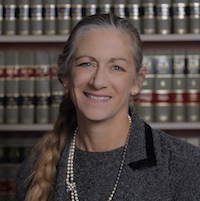
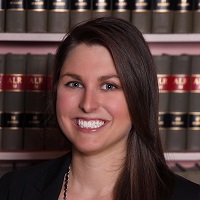 Allison MacKenzie Attorneys, Joan C. Wright and S. Jordan Dunlap, Recognized for Their Pro Bono Service
Allison MacKenzie Attorneys, Joan C. Wright and S. Jordan Dunlap, Recognized for Their Pro Bono Service
January 22, 2016
Carson City, Nevada
For the second year in a row, Volunteer Attorneys for Rural Nevadans (VARN) has recognized Allison MacKenzie, LTD. attorneys for their outstanding volunteer pro bono service.
VARN holds an annual Pro Bono Service Awards reception held in the Supreme Court Rotunda to honor those members of Nevada’s legal community who participate in the organization’s Pro Bono Program by providing exceptional legal services to low-income rural Nevadans.
On January 20, 2016, two Allison MacKenzie, LTD attorneys, Joan C. Wright and S. Jordan Dunlap, were honored for their participation in VARN events, including the organization’s annual legal aid
Attorneys Recognized for Their Pro Bono Service
Local Talent Returns to Carson City to Pursue Legal Career with Allison MacKenzie Law Firm
Kyle A. Winter Joins Allison MacKenzie Law Firm as New Associate Attorney
Carson City native, Kyle A. Winter returns home and accepts associate position with Allison MacKenzie Law Firm in Carson City, Nevada effective September 8, 2015. This home grown talent will focus his practice in the areas of family law, estate planning, guardianships and probate law.
After graduating from Carson High School in 2005, Kyle attended the University of Nevada, Reno. In 2009, he graduated with a degree in Criminal Justice and an emphasis in Philosophy. In 2013, he obtained his Doctor of Jurisprudence Degree from Gonzaga University, located in Spokane, Washington. Dedicated to serving the Northern Nevada community, Kyle returned to the area to begin his legal career clerking for the Honorable James E. Wilson, Jr. at Nevada’s First Judicial District Court, in Carson City, and then for the Honorable Jerome M. Polaha at Nevada’s Second Judicial District Court, in Reno.
Kyle was admitted to practice in Nevada in 2013, and is a member of the State Bar of Nevada, and the Carson City and Washoe County Bar Associations.
Aside from his professional endeavors, Kyle is an active supporter of United Blood Services and donates blood whenever possible. He looks forward to exploring and supporting other area volunteer opportunities in the future. Kyle and his wife currently live in Reno with their new born son and two dogs. They enjoy a variety of outdoor activities including fishing and golfing.
“I am happy to be returning to my hometown, and am pleased that I will be able to serve the citizens of this wonderful community. Not only is Allison MacKenzie Law Firm well respected within the State of Nevada but it is also recognized nationally for its outstanding contributions to the legal field and the communities it serves. The attorneys are professional and wonderful to work with. Our staff is supportive and knowledgeable. I look forward to providing our clients with effective, comprehensive representation,” said Kyle about his new association.
Allison MacKenzie Law Firm was recently recognized by Martindale-Hubble as a US Top Ranked Law Firm for 2015. This determination was made after LexisNexis® Martindale-Hubbell® researched over 1.2 million lawyers and firms, in over 160 countries, and identified the top law firms in the United States. Additionally, Allison MacKenzie Law Firm was recognized by US News and World Report as one of the 2015 “Best Law Firms” in the country and was honored with a Metropolitan Tier 1 ranking in the practice area of Energy Law.
The talented legal team of Allison MacKenzie Law Firm is pleased to welcome Kyle to the organization. The firm is confident Kyle will provide exceptional, personalized service to clients as well as assist clients in successfully navigating the often complex litigious landscape of the many practice areas served by the firm. For more information, contact Allison MacKenzie Law Firm at 775.687.0202, or visit allisonmackenzie.com.
Allison MacKenzie Law Firm of Carson City, Nevada has been recognized as one of the 2016 “Best Law Firms” by US News and World Reports.
Allison MacKenzie Law Firm was honored with a Metropolitan Tier 1 ranking in the practice area of Energy Law.
To see the complete 6th Edition of the Best Law Firms 2016 publication click here or on the image below.
Northern Nevada Attorney Honored for Outstanding Dedication to Legal Principles and Welfare of the Community
Allison MacKenzie Law Firm is pleased to announce Ryan Russell, a partner at Allison MacKenzie Law Firm in Carson City, Nevada, has been elected as a member of The Fellows of the American Bar Foundation. Ryan’s new membership follows the endeavors of notable attorney and co-founder of Allison MacKenzie Law Firm, Andrew “Andy” MacKenzie, who is also a member of The Fellows. Andy holds the distinguished status of Life Fellow with the American Bar Foundation.
In order to receive this honor, Ryan was nominated by area members of The Fellows and subsequently elected by the Board of the American Bar Foundation. Membership in The Fellows is limited to less than one percent of lawyers licensed to practice in each jurisdiction.
The American Bar Foundation is a 501 (c) (3) charitable organization dedicated to advancing justice and serving legal professionals and the public through rigorous research on the impact of law, lawyers and the legal process on our society.
Instrumental in supporting the efforts of the American Bar Foundation, The Fellows is an honorary organization of lawyers, judges, and legal scholars whose public and private careers have demonstrated outstanding dedication to the welfare of their communities and to the highest principles of the legal profession.
Following in Allison MacKenzie Law Firm’s rich tradition and dedication to community service, Ryan serves as Carson City’s representative on the State Bar of Nevada’s Board of Governors as well as on the Boys and Girls Club of Western Nevada’s Board of Directors. Further, Ryan continues his service as a Judge Pro Tempore for the Carson City Justice and Municipal Courts which he commenced in 2010.
“I am honored to have been nominated and elected into this elite association and am humbled to be in such distinguished company as our firm’s co-founder, Andy MacKenzie. Andy has been instrumental in encouraging all of us in our organization to be civic minded. At Allison MacKenzie Law Firm, we take this to heart and strive to make our community a better place to live through positive actions,” said Ryan Russell on his recent election.
Ryan Russell joined Allison MacKenzie in 2004. Ryan is a 4th generation Carson City, Nevada native who graduated from Carson High School. After graduating from the University of Nevada, Reno in 2000 with a Bachelor of Science in Business Management, Ryan pursued and obtained his law degree from the University of Nevada, William S. Boyd School of Law in 2003. He was admitted to practice law in Nevada in 2003. Ryan’s areas of legal practice include: Administrative Law, Business Entity Formation, Business Law, Family Law, Education Law, Healthcare Law and Litigation.
Allison MacKenzie Law Firm is proud of Ryan’s nomination and election into this prestigious association. The firm remains dedicated to civic service and encourages its team of talented attorneys and staff to support area non-profits and community organizations.
See the article at: Carsonnow.org
Carson City, Nevada Attorney Thoran Towler
Thoran Towler continues his educational series on Employer Rights and Responsibilities with High Expectations for Employers. Featured in Carson Now, Thoran Towler explores Nevada law and its effect on Employment Law for local businesses.
Nevada is one of 23 states with laws protecting the medical use of marijuana. Although the laws vary widely in each of the 23 states, the standard rule is that individuals with qualifying medical conditions may legally use marijuana. The big question for employers is whether an employee can be terminated for medical marijuana use. Many employers have drug-free workplace policies that prohibit the use of illegal drugs both on and off the clock. Regardless of Nevada’s position on medical marijuana, marijuana use is still illegal according to federal law. Nevada employers may be at a loss on how to handle violations of their drug-free workplace policies by employees who carry “medicinal marijuana cards.”
Read the complete article at CarsonNow.org.
 Jordan Dunlap joined Allison MacKenzie as an associate attorney in June, 2015. She is a graduate of the University of Oregon School of Law, and is licensed to practice in both Nevada and California. A resident of Stateline, Nevada, Jordan is a member of the Tahoe Regional Young Professionals as well as the American, Carson, Douglas, and Washoe County Bar Associations.
Jordan Dunlap joined Allison MacKenzie as an associate attorney in June, 2015. She is a graduate of the University of Oregon School of Law, and is licensed to practice in both Nevada and California. A resident of Stateline, Nevada, Jordan is a member of the Tahoe Regional Young Professionals as well as the American, Carson, Douglas, and Washoe County Bar Associations.
In law school, Jordan was elected to the Executive Board of the Journal of Environmental Law and Litigation. Her strong legal research and writing skills earned her positions as Research Assistant to Deans, Professors, and Judges, and a law clerk position to the Lane County, Oregon, County Counsel.
Upon graduation from law school, Jordan returned to the south shore of Lake Tahoe, Nevada, to make her home and begin her legal career in 2013. Her work and training experience in law school and her time as a staff member of the Tahoe Regional Planning Agency have helped her become familiar with the unique challenges associated with living in the Tahoe Basin, and have fostered her interest in renewable resources, environmental law, land use law, and water rights law.
Jordan is outdoor enthusiast and enjoys taking advantage of the opportunities for sport and exploration that make living in the heart of the Sierras such a privilege.
Jordan looks forward to serving her neighbors in the Carson – Tahoe community. To meet Jordan, please call her at (775) 687-0202 or email her at jdunlap@allisonmackenzie.com.
By Thoran Towler
Employer Rights and Responsibilities—A Series
On March 25, 2015, the United States Supreme Court delivered its opinion on a case relating to treatment of pregnant workers that is of interest to businesses. In Young v. United Parcel Service, Inc., 575 U.S. ___ (2015), the Court evaluated the requirements for bringing a disparate (discrimination) treatment claim under the Pregnancy Discrimination Act.
The Pregnancy Discrimination Act was subsequent language added to the Civil Rights Act of 1964. In synopsis, the additional language clarifies that sex discrimination includes discrimination on the basis of pregnancy, childbirth, or related medical conditions (see 42 U. S. C §2000e (k)). Additionally, it states that employers must treat “women affected by pregnancy . . . the same for all employment-related purposes . . . as other persons not so affected but similar in their ability or inability to work.”
In Young v. United Parcel Service, Inc., 575 U.S.___ (2015), Young asked the Court to determine how the latter provision applied in the context of an employer’s policy that accommodates many, but not all, workers with non-pregnancy related disabilities. The plaintiff, Ms. Peggy Young, was employed by United Parcel Service, Inc. (UPS), who generally required employees to be able to lift 70 lbs.
In 2006, after Young had suffered several miscarriages, she became pregnant. Ms. Young’s doctor had restricted lifting to 20 lbs. Since her condition did not meet qualifications for “light duty,” Young was not accommodated by UPS. However, light duty was available for on-the-job injuries, employees with Americans with Disabilities Act (ADA) qualified conditions, and those who lost Department of Transportation (DOT) certification.
The United States Supreme Court’s 2015 ruling held that an employee could make a disparate treatment claim through indirect evidence. This ruling means that when Young was denied her request to accommodate her lifting restriction, the company, in turn, would be required to show that the reasoning for non-accommodation was legitimate. Legitimacy does not include costs incurred by the company or inconvenience. Thus, if the employer grants an accommodation to other employees with similar limitations, the company must grant pregnant employees the same accommodation.
It should be noted that this incident happened before the enactment of the 2008 pregnancy amendments to the ADA, which have been expanded in such a way that Ms. Young could have applied for protection under the ADA.
To read the full opinion of the United States Supreme Court in Young v. United Parcel Service, Inc., 575 U.S. ___ (2015) visit:
http://www.supremecourt.gov/opinions/14pdf/12-1226_k5fl.pdf
The legal areas of Labor and Employment Law are constantly changing and it is imperative for employers to stay abreast of laws that impact their policies and procedures. It is important for employers to have access to a professional team of lawyers who are current on this ever changing legal landscape, and its ultimate effect on businesses.
Thoran Towler practices labor and employment law at Allison MacKenzie Law Firm in Carson City. Allison MacKenzie Law Firm serves diverse client interests in Northern Nevada areas such as: Carson City, Dayton, Reno, Sparks, Fernley, Lyon County, Lake Tahoe, Washoe Valley and more. Prior to joining Allison MacKenzie, Thoran served as the State of Nevada Labor Commissioner from 2011 through 2014. Thoran brings an expertise in the areas of wage and hour, labor and employment law, union issues, prevailing wage and public works. Thoran can be reached by email at ttowler@allisonmackenzie.com or by calling him at 775.687.0202.

